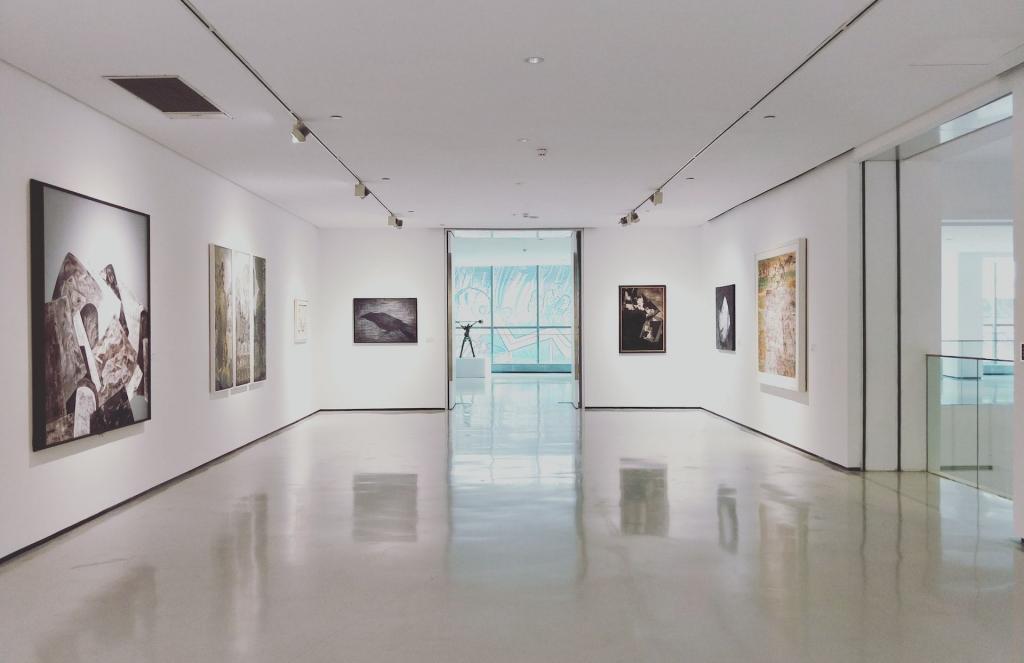Thessaloniki gets ready for its metro launch in November
The underground rapid transit lines have been under construction for almost two decades due to various project delays
 TheMayor.EU logo
TheMayor.EU logo 
The city of Stuttgart will pay artists to do exhibitions, starting 2023, Source: Dannie Jing / Unsplash
The project provides for a flat rate to be paid directly to them, irrespective of other funding, in order to strengthen the local cultural sector
Yesterday, city authorities in Stuttgart, Germany, announced a new funding programme for artists that will see the city pay out a flat fee for holding exhibitions. Authorities have dubbed this initiative the Model for Stuttgart (Modell für Stuttgart) and want to use it to stimulate the arts sector in the city, while alleviating financial barriers to creating exhibitions.
The programme will kick in at the start of 2023 and will last for an initial for four years, according to an official statement by the city. At the same time, the municipal council has delegated a budget of 210,000 euros to fund the Model for Stuttgart.
As part of the Model for Stuttgart, artists and institutions will receive flat rates for holding exhibitions. For a solo artist exhibition, the rate is set at 1,500 euros, for a small group of two to three artists, the rate is set at 500 euros per artist and for a medium-sized group of four to nine artists – 250 euros. For a larger group of more than nine artists, the rate is set at 100 euros per artist.
Moreover, city officials chose the term ‘basic exhibition fee’ (Ausstellungsgrundvergütung) to send a clear message that it means a catch-all policy for contributing to the local art scene. These flat rates are understood as a minimum payment, that can be increased by additional contributions from local cultural institutions, at their own discretion.
Applications for the basic exhibition fee will be available to both artists and institutions of all types. Through this, the local administration hopes to allow cultural projects the chance to accumulate financial resources from multiple sides and programmes.
At the same time, the project has been dubbed a test run and is subject to iterations as authorities gather data on how it interacts with the local cultural sector.

The underground rapid transit lines have been under construction for almost two decades due to various project delays

Now you can get your wine in Talence by paying directly in Bitcoin

That’s because the state has to spend money on updating the railway infrastructure rather than subsidizing the cost of the popular pass

Rethinking renewable energy sources for the urban landscape

The examples, compiled by Beyond Fossil Fuels, can inform and inspire communities and entrepreneurs that still feel trepidation at the prospect of energy transition

Now you can get your wine in Talence by paying directly in Bitcoin

The 10th European Conference on Sustainable Cities and Towns (ESCT) sets the stage for stronger cooperation between the EU, national and local level to fast track Europe's transition to climate neutrality.

At least, that’s the promise made by the mayor of Paris, Anne Hidalgo

The underground rapid transit lines have been under construction for almost two decades due to various project delays

At least, that’s the promise made by the mayor of Paris, Anne Hidalgo

Hostal de Pinós is located in the geographical centre of the autonomous region

Despite its church-y name, the district has long been known as the hangout spot for the artsy crowds

Urban dwellers across the EU are having a say in making their surroundings friendlier to people and the environment.

Forests in the EU can help green the European construction industry and bolster a continent-wide push for architectural improvements.

Apply by 10 November and do your part for the transformation of European public spaces

An interview with the Mayor of a Polish city that seeks to reinvent itself

An interview with the newly elected ICLEI President and Mayor of Malmö

A conversation with the Mayor of Lisbon about the spirit and dimensions of innovation present in the Portuguese capital














